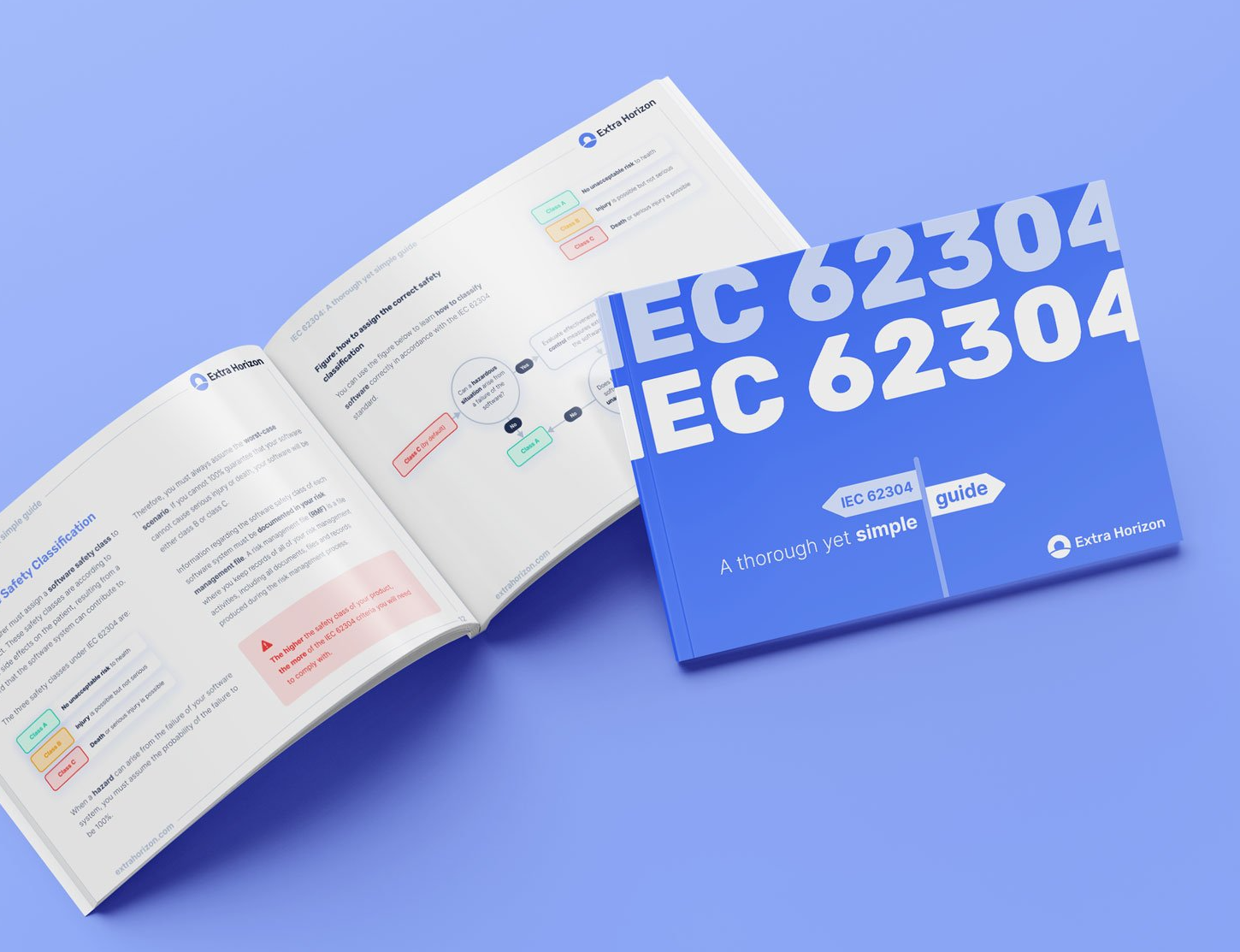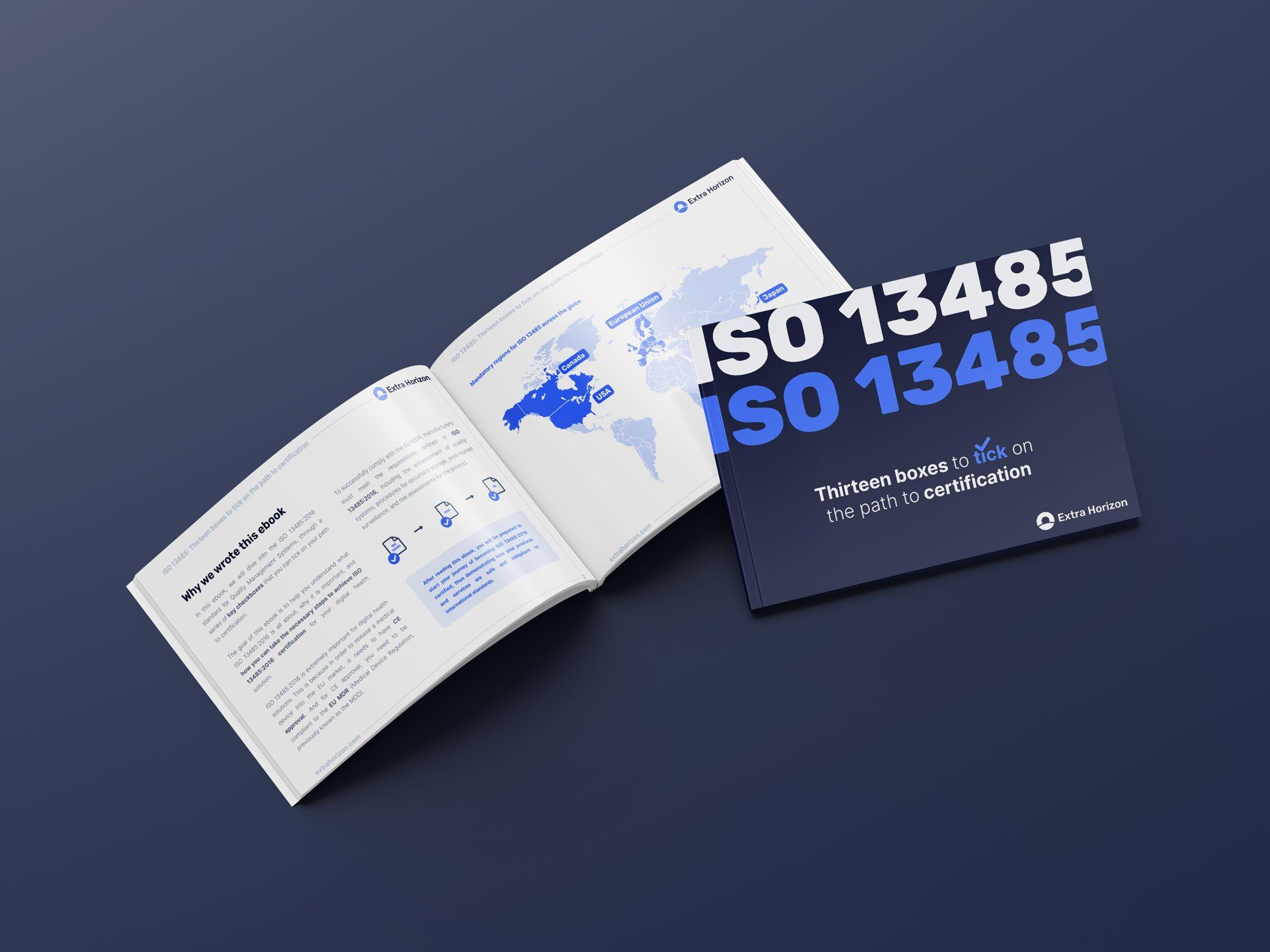Encryption: the Key to Success to Navigate the Complexities of Data Security in Healthcare
In the intricate landscape of healthcare and medtech, where patient data is sacred and regulatory compliance is paramount, the journey through data security becomes even more challenging. In this blog, we will delve deeper into the importance of encryption, unraveling the intricacies of data security specific to the healthcare and medtech environments.
The Backstory: Why Encryption Has Become Vital for Digital Medical Applications
The Schrems II ruling and its Implications for Healthcare
The Schrems II ruling has significantly impacted the data protection landscape, shaking the foundations of the EU–US Privacy Shield. This has raised concerns about the adequacy of data protection measures for patient information. Despite commendable efforts by U.S. medtech companies, the nuanced challenges posed by U.S. surveillance laws continue to create hurdles in achieving GDPR and HIPAA compliance.
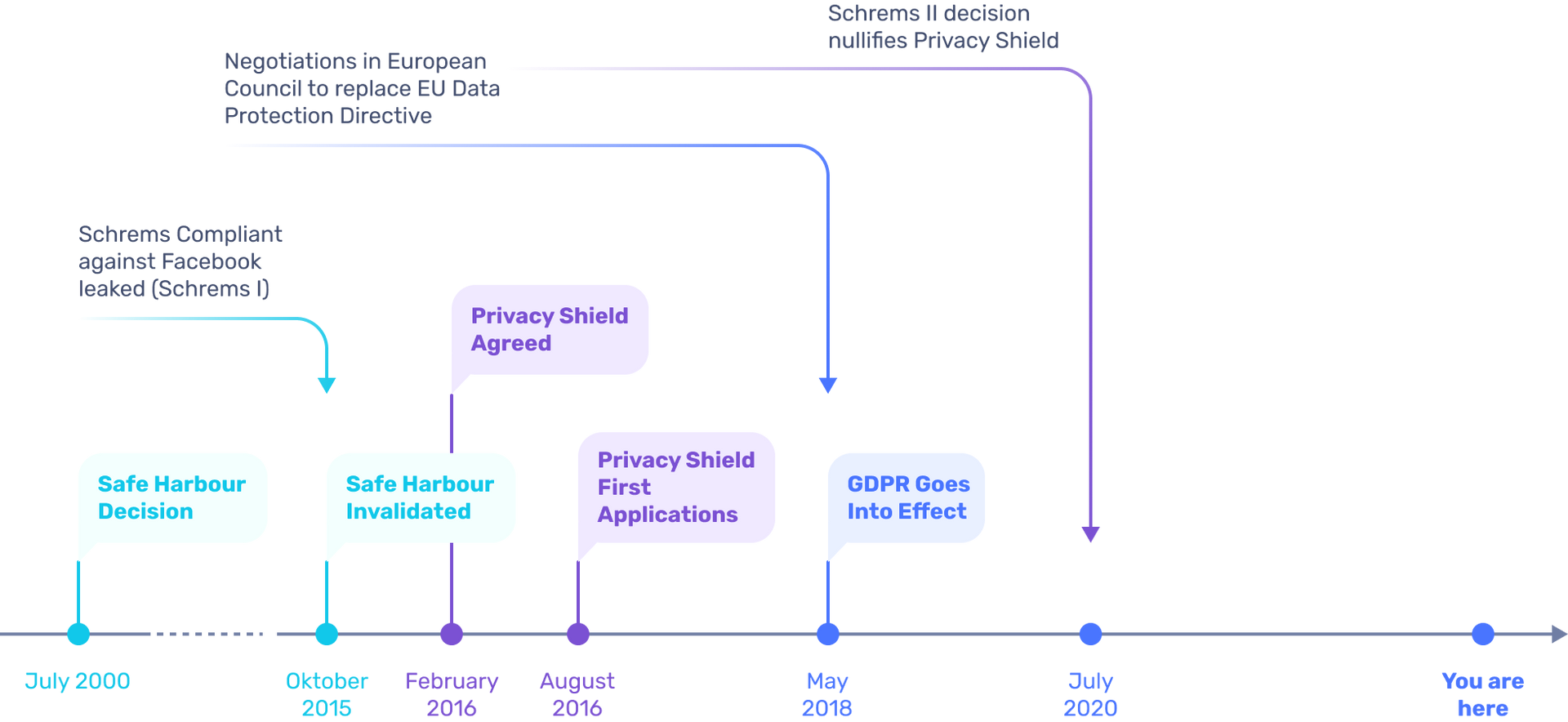
Adopting Standard Contractual Clauses (SCCs) and server location strategies
In response to these challenges, companies in the U.S. and beyond have smartly started using Standard Contractual Clauses (SCCs) in their contracts. They have also been strategically choosing server locations, such as setting up branches in Europe or collaborating with cloud companies with servers in the EU. While this has been a pivotal step forward, ambiguity persists due to U.S. ownership and the potential for U.S. authorities to request access to data, especially in healthcare settings.
The Trans-Atlantic Data Privacy Framework: a ray of hope
Looking ahead, we must acknowledge the progress made in March 2022 with the announcement of the Trans-Atlantic Data Privacy Framework by the European Commission and the U.S. While a draft has been thoroughly reviewed, the absence of a concrete adequacy decision leaves the current situation uncertain. The complex nature of trans-continental data privacy negotiations, especially in the highly regulated healthcare sector, indicates that a comprehensive solution will take time.

Data protection is not black and white - The Doctolib Ruling (France)
A noteworthy case in the healthcare sector, the Doctolib ruling in France, highlights the significance of "sufficient safeguards." This ruling emphasizes how legal and technical measures, including encryption and key management, play a pivotal role in ensuring data protection in healthcare. The court's decision, ruling in favor, underscores the importance of these safeguards, even when hosted by a U.S.-based provider like AWS.
Thus bridging us to the next section of this blog piece, which is a closer look into the world of encryption (especially in a healthcare setting).
The Basics: Diving Deeper into the World of Encryption
In our data-driven world, encryption holds immense significance, particularly in the healthcare and medtech industry. Let's explore why below.
Importance of Encryption in the Healthcare Industry
Healthcare has become one of the most data-intensive industries, generating and storing vast amounts of patient information. Approximately 30% of the world’s data volume is generated by the healthcare industry. Safeguards,
including encryption, are critical for protecting patient information from unauthorized access or use due to a growing number of data breaches.
Why Do We Need Encryption?
Confidentiality: Prevents unauthorized access to sensitive information, ensuring only authorized users can view it.
Security: Encryption helps protect data from theft or hacking, making it more difficult for attackers to access and steal sensitive information, thus improving data security.
Compliance: In many industries, data encryption is a requirement to meet regulations, such as HIPAA for healthcare.
Privacy:
Encrypting data protects personal information, such as health records, from being accessed or used without permission.
Trust: Encryption helps build trust between organizations, customers, and partners by demonstrating a commitment to protect sensitive information.
Authentication: Through digital signatures, digital certificates, or a Public Key Infrastructure.
Top 5 Use Cases of Data Encryption in Healthcare
Electronic Health Records (EHRs): Protecting comprehensive patient records from unauthorized access.
Medical Devices: Securing data transmitted between connected medical equipment like insulin pumps and pacemakers.
Remote Patient Monitoring (RPM): Ensuring the confidentiality of vital signs and health data outside traditional healthcare settings.
Telemonitoring: Safeguarding data transmitted during telehealth sessions, maintaining patient information confidentiality.
Healthcare Data Analytics:
Protecting large sets of healthcare data used for insights into patient health and healthcare operations.
Some of the Healthcare Related Standards Referring to Encryption
HIPAA Requirements: Mandates encryption to protect ePHI during storage or transmission.
GDPR Requirements: While GDPR doesn't explicitly mention encryption, it emphasizes enforcing security measures, and encryption is considered an "appropriate technical and organizational measure."
ISO27001:
Emphasizes encrypting data as a critical control for ensuring confidentiality, integrity, and availability of information.
ISO27701: Provides a cryptographic framework for organizations to operate within, emphasizing policy on the use of cryptographic controls and key management.
Country-Specific Regulations
In the ever-evolving landscape of healthcare data security, adherence to country-specific regulations crucial. Two noteworthy examples are the regulations in Germany and France:
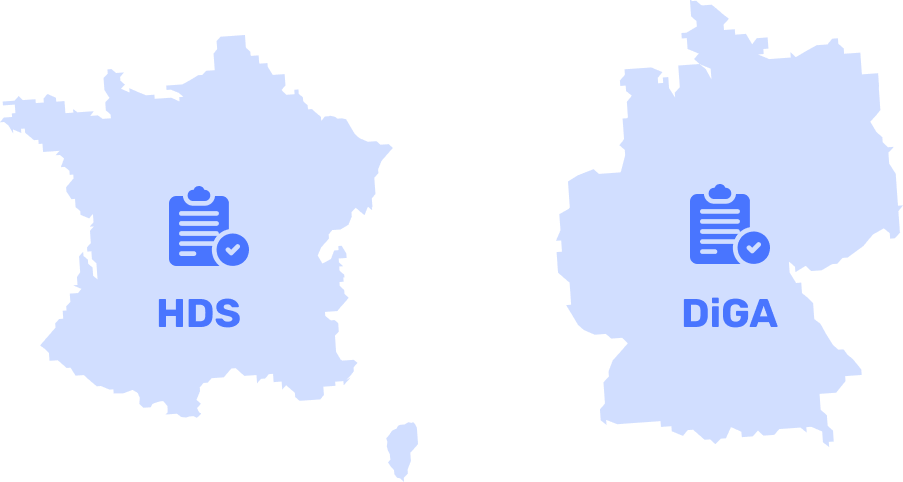
DIGA (Germany): Elevating Data Security Through Comprehensive Measures
In Germany, the Digital Health Applications (DiGA) regulations set forth stringent requirements for safeguarding health data. Beyond the standard practices, DiGA mandates the implementation of an Information Security Management System (ISMS). This systematic approach ensures a comprehensive strategy for managing and protecting sensitive health information. Furthermore, DiGA places a significant emphasis on encryption as a fundamental component of its data security framework.
HDS (France):
Upholding Rigorous Standards for Personal Health Data Protection
Across the border in France, the Hébergeurs de Données de Santé (HDS) certification is a pivotal element in the nation's healthcare data landscape. This certification doesn't just recommend but mandates strong measures for securing personal health data. In alignment with broader data protection principles, HDS emphasizes encryption as a non-negotiable aspect of its certification requirements.
Proposing a Better Option for Addressing Healthcare Data Security Challenges & Encryption:
The Extra Horizon Option
We explore three viable options for medtech companies navigating the intricate landscape of healthcare data security challenges. Among them, the Extra Horizon option stands out, offering EU-based storage locations, cluster-level encryption, and safe key management.
Our Conclusion
This blog provides a comprehensive but still to the point exploration into the critical role of encryption in the healthcare and medtech landscape. From dissecting legal implications like the Schrems II ruling to highlighting pivotal cases such as the Doctolib ruling in France, we've navigated the intricate web of data security challenges.
Extra Horizon stands as a beacon of security, offering tailored solutions that leverage EU-based storage locations, cluster-level encryption, and safe key management. In the highly regulated and data-intensive sector of healthcare, ensuring the confidentiality, integrity, and availability of information remains our daily commitment.
Reach out to us to learn more on our encryption capabilities.
RECENT POSTS
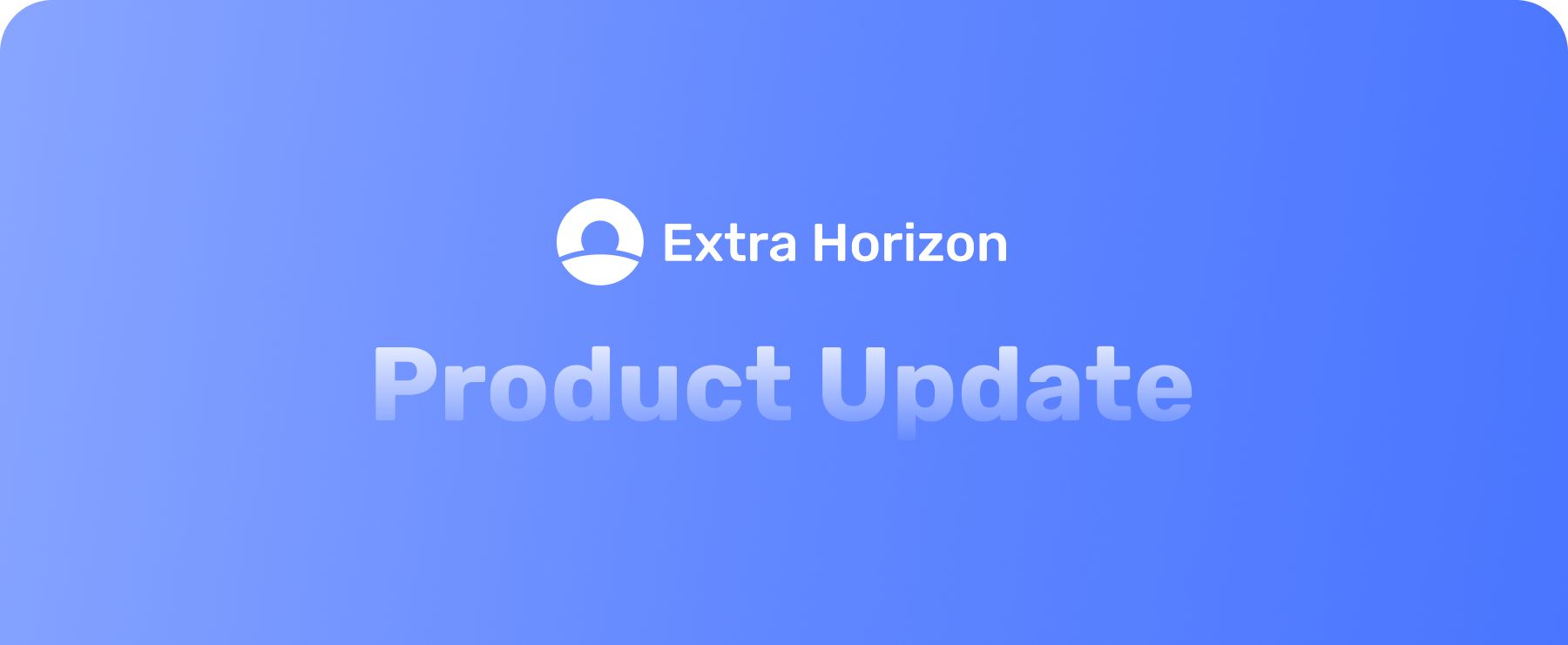
FREE EBOOKS
GOT QUESTIONS?


